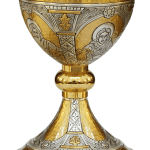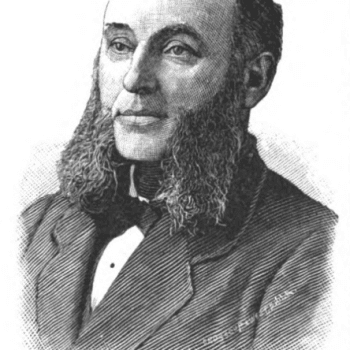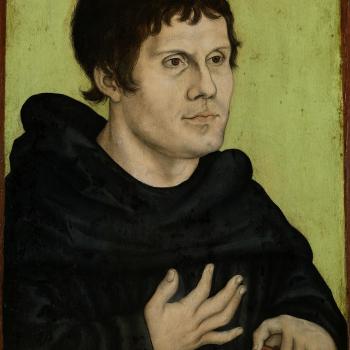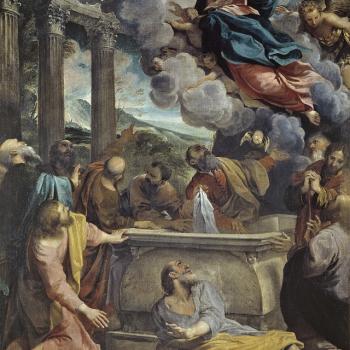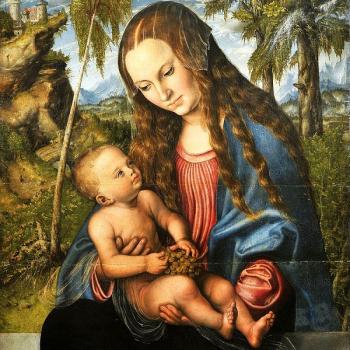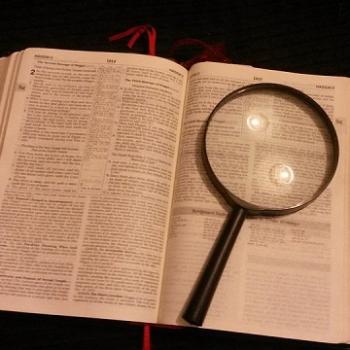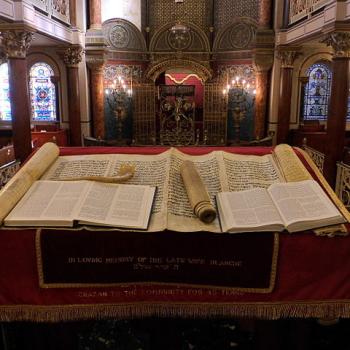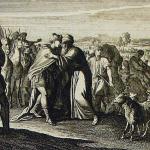
“Please Hit ‘Subscribe’”! If you have received benefit from this or any of my other 4,600+ articles, please follow this blog by signing up (with your email address) on the sidebar to the right (you may have to scroll down a bit), above where there is an icon bar, “Sign Me Up!”: to receive notice when I post a new blog article. This is the equivalent of subscribing to a YouTube channel. Please also consider following me on Twitter / X and purchasing one or more of my 55 books. All of this helps me get more exposure, and (however little!) more income for my full-time apologetics work. Thanks so much and happy reading!
***
[modified slightly from an article of mine originally posted on 19 March 2002; all sources cited are Protestant]
***
*
3. These discussions were still dealing with the disputed canonicity of books like Esther, Proverbs, Ecclesiastes, Canticles, and even Ezekiel after the death of Jesus and after most or all of the New Testament was completed (The New Bible Dictionary). So Paul and Jesus (or any New Testament writer) could hardly have assumed a commonly accepted Old Testament canon before this time.
*
4. The Jewish historian Josephus “also uses books which we count among the Apocrypha, e.g. 1 Esdras and the additions to Esther.” (The New Bible Dictionary).
*
5. The Jews of the Dispersion (particularly the Alexandrian, Greek-speaking Jews) regarded several additional Greek books as equally inspired, — i.e., the so-called Apocrypha. (Oxford Dictionary of the Christian Church).
*
6. “During the first three centuries these were regularly used also in the Church . . . St. Ambrose, St. Augustine, and others placed them on the same footing as the other OT books.” (Oxford Dictionary of the Christian Church).
*
7. The Septuagint (LXX), incorporated all of the so-called “Apocryphal” books except 2 Esdras, and they were in no way differentiated from the other Books of the OT. (Oxford Dictionary of the Christian Church).
*
8. “Christians . . . at first received all the Books of the Septuagint equally as Scripture . . . Down to the 4th cent. the Church generally accepted all the Books of the Septuagint as canonical. Gk. and Lat. Fathers alike (e.g., Irenaeus, Tertullian, Cyprian) cite both classes of Books without distinction . . . with a few exceptions (e.g., Hilary, Rufinus), Western writers (esp. Augustine) continued to consider all as equally canonical . . . [the “Apocrypha” was] read as Scripture by the pre-Nicene Church and many post-Nicene Fathers . . . ” (Oxford Dictionary of the Christian Church).
*
9. “In the 4th cent., however, many Gk. Fathers. . . came to recognize a distinction between those canonical in Heb. and the rest, though the latter were still customarily cited as Scripture.” (Oxford Dictionary of the Christian Church).
*
10. “Luther, however, included the Apocrypha (except 1 and 2 Esd.) as an appendix to his translation of the Bible (1534), and in his preface allowed them to be ‘useful and good to be read'” (Oxford Dictionary of the Christian Church).
*
11. “The NT writers commonly quoted the OT Books from [the Septuagint] . . . In post-NT times, the Christian Fathers down to the later 4th cent. almost all regarded the LXX as the standard form of the OT.” (Oxford Dictionary of the Christian Church).
*
12. “We cannot say with absolute certainty, for example, if Paul treated Esther or the Song of Solomon [elsewhere Bruce adds Ecclesiastes] as scripture any more than we can say if those books belonged to the Bible which Jesus knew and used.” (Bruce, ibid.).
*
13. According to “The Nestle-Aland edition of the Greek New Testament (1979)” Jude 14 ff. is “a straight quotation . . . from the apocalyptic book of Enoch (1 Enoch 1:9).” (Bruce, ibid.).
*
14. “Several quotations in the New Testament . . . are introduced as though they were taken from holy scripture, but their source can no longer be identified. For instance, the words ‘He shall be called a Nazarene’, quoted in Matthew 2:23 as ‘what was spoken by the prophets’, . . . John 7:38 . . . is introduced by the words ‘as the scripture has said’ – but which scripture is referred to? . . . there can be no certainty . . . 1 Corinthians 2:9, . . . James 4:5 . . .” (Bruce, ibid.).
*
15. The Dead Sea Scrolls from the Qumran community revealed that they did not have Esther included in their canon. (Bruce, ibid.).
*
16. As for “Tobit, Jubilees and Enoch, fragments of which were also found at Qumran? . . . were they reckoned canonical by the Qumran community? There is no evidence which would justify the answer ‘Yes’; on the other hand, we do not know enough to return the answer ‘No’.” (Bruce, ibid.).
*
17. “As Athanasius includes Baruch and the ‘Letter of Jeremiah’ . . . so he probably includes the Greek additions to Daniel in the canonical book of that name . . .” (Bruce, ibid.).
*
18. St. Athanasius excludes Esther from the canon. (Bruce, ibid.).
*
19. “In practice Athanasius appears to have paid little attention to the formal distinction between those books which he listed in the canon and those which were suitable for the instruction of new Christians [he cites Wisdom of Solomon, Wisdom of Sirach, Esther, Judith, and Tobit] . . . and quoted from them freely, often with the same introductory formulae – ‘as it is written’, ‘as the scripture says’, etc.” (Bruce, ibid.).
*
20. The Councils of Hippo in 393 (“along the lines approved by Augustine”) and the Third Council of Carthage in 397: . . . appear to have been the first church councils to make a formal pronouncement on the canon . . .” (Bruce, ibid.).
*
21. The Councils of Hippo in 393 and the Carthage in 397 “simply endorsed what had become the general consensus of the churches in the west and of the greater part of the east . . .” (Bruce, ibid.).
*
22. Yet Hippo and Carthage, along with “The Sixth Council of Carthage (419)” included “the apocryphal books.” (Bruce, ibid.).
*
23. “Throughout the following centuries most users of the Bible made no distinction between the apocryphal books and the others: all alike were handed down as part of the Vulgate . . .” (Bruce, ibid.).
*
24. “Differences of opinion also are recorded among the tannaim (rabbinical scholars of tradition who compiled the Mishna, or Oral Law) and amoraim (who created the Talmud, or Gemara) about the canonical status of Proverbs, Song of Songs, Ecclesiastes, and Esther.” (Encyclopedia Britannica)
*
25. “All this indicates a prolonged state of fluidity in respect of the canonization of the Ketuvim [“the Writings”]. A synod at Jabneh (c. 100 CE) seems to have ruled on the matter, but it took a generation or two before their decisions came to be unanimously accepted and the Ketuvim regarded as being definitively closed.” (Encyclopedia Britannica)
*
26. “A council probably held at Rome in 382 under St. Damasus gave a complete list of the canonical books of both the Old Testament . . . which is identical with the list given at Trent.” (The Oxford Dictionary of the Christian Church)
*
27. “This canon [of Carthage] remained undisturbed till the sixteenth century, and was sanctioned by the council of Trent at its fourth session.” (Philip Schaff,
History of the Christian Church).
*
More In-Depth Reading On This Topic
*
*
*
*
*
*
*
*
*
*
*
*
*
*
*
*
*
*
*
*
*
*
*
Summary: I provide the Catholic case for the deuterocanonical books (called the “Apocrypha” by Protestants) being part of Holy Scripture, using only Protestant sources.
*
***
*
Practical Matters: Perhaps some of my 4,600+ free online articles (the most comprehensive “one-stop” Catholic apologetics site) or fifty-five books have helped you (by God’s grace) to decide to become Catholic or to return to the Church, or better understand some doctrines and why we believe them.
Or you may believe my work is worthy to support for the purpose of apologetics and evangelism in general. If so, please seriously consider a much-needed financial contribution. I’m always in need of more funds: especially monthly support. “The laborer is worthy of his wages” (1 Tim 5:18, NKJV). 1 December 2021 was my 20th anniversary as a full-time Catholic apologist, and February 2022 marked the 25th anniversary of my blog.
PayPal donations are the easiest: just send to my email address: apologistdave@gmail.com. Here’s also a second page to get to PayPal. You’ll see the term “Catholic Used Book Service”, which is my old side-business. To learn about the different methods of contributing (including Zelle), see my page: About Catholic Apologist Dave Armstrong / Donation Information. Thanks a million from the bottom of my heart!
*
***
*




